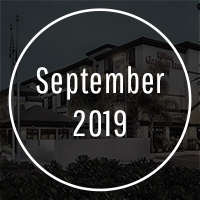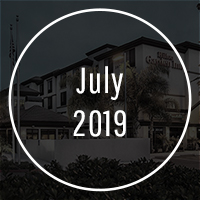The Science of Digital Marketing
We’ve seen a quantum shift from hospitality as an art to hospitality as a science with the advent of digital marketing. For a Wikipedia definition, digital marketing is the use of digital sources based on electronic signals like Internet, digital display advertising and other digital media such as television and radio. At its heart, digital marketing centers around the Internet which has become a very powerful medium. Some of the trends that we have seen occur over the past several years include online booking, mobile bookings, more sophisticated revenue management, distribution channel management and social media marketing.
Online Booking
The number of U.S. travelers booking and researching online is still growing. More than 128.8 million people will research travel online this year, while 106.3 million will actually book reservations, according to eMarketer. While more than 63 percent of travel bookings are made on the Internet, the online travel market has matured and we expect modest growth and stabilization.
Mobile Bookings
More and more travelers will be turning to the
ir mobile devices to not only research lodging and travel options, but to book, communicate room preferences and check-in directly with the hotel. According to eMarketer, 47 percent of travelers will research travel options using their mobile device, while 31.6 percent will actually book their travel on a mobile device. With mobile devices overtaking PCs as the most common web-access device, mobile is creating the need for a better-curated experience. Booking providers can deliver well-targeted information to travelers and the growth of HotelTonight and Room 77 are examples of mobile solutions that focus on the user experience and provide quick and easy booking options. With travelers adopting smart phones and tablets at such a rapid pace, it’s crucial for hoteliers to optimize their Website for mobile usage to capture potential mobile transactions. Google now rewards sites with higher rankings by having a mobile friendly website. Google has made it easier for users to test their website to ensure they are in line with Google’s new standards and considered mobile friendly.Revenue Management
Revenue management has morphed from the days it was first introduced by the airline industry in the 1970s to being a complex science today. Managers have always lowered prices to stimulate sales when demand is weak and have raised prices during peak demand periods. Hotels are now able to update prices for all future arrival dates to match market demands each day, via advanced market intelligence applications. TravelClick has pace reports for transient and group demand that look at bookings one year in advance. Plus, STR is offering intelligence looking at future bookings, rather than solely historic figures. Today, it is time for the industry to price based on value perception and not just price relative to a competitor. Understanding the true demand in a marketplace is quite scientific.
Social Media Marketing
Another trend that has taken hold is social media mania. Get on board if you are not yet busy with Facebook, Twitter, LinkedIn and the maze of social media opportunities, but have a plan. While social media is not a panacea and does not yet close many deals, travelers clearly rely on the information to help them choose a hotel. Moreover, we are entering a period of time where “reputation management” is also becoming a science. Studies have shown that 90 percent of travelers trust recommendations from their friends and family more than any other form of advertising. In addition, 70 percent of travelers make decisions based on review and responses on review sites. This field is growing as technology companies work to differentiate themselves.
Proliferation of Distribution Channel Management Will Largely Impact Pricing
More than ever, it will be vital for hotel owners and operators to stay on top of the distribution landscape that is expanding beyond OTAs, including popular sales vehicles such as meta-search, flash sales and mobile channels. Beyond simple awareness of the different mediums available to sell hotel rooms, hoteliers must know the costs of the variety of distribution channels and the returns expected from each. Hoteliers must preserve rate parity and their brand by utilizing the most cost-effective distribution channels, instead of using desperate measures to sell inventory.
Internet Marketing
Internet marketing is very complex. Branding and promotional messages from properties is combined with user generated content and reviews from travelers.
Internet marketing produces the highest ROI with the most accountability. Today, both hotels and destination marketing agencies are finding the return on Internet Marketing to outperform traditional media. Unlike conventional marketing, the results of marketing efforts are measurable and transparent. Smart hoteliers can use this information to their advantage to track financial performance of this medium.
Where should one focus these marketing efforts? Having a proprietary web site can fill gaps and help your hotel gain visibility for searches especially if search engine optimization (SEO) is utilized. Proprietary sites add to branded sites by doubling the online promotional efforts despite the efforts of brands to shut these sites down. For independent hotels, a proprietary website is a necessity. These web sites must have powerful SEO, including optimized content, link building and a local search distribution that make it easy to find in search engines. It should also have relevant, compelling copy.
The Path Forward
Today’s digital marketing firms must be prepared to respond to all of these trends and more. They must have a market presence and level of sophistication to play in the big leagues because minor league performance loses today. That’s the real impact of the industry as a science rather than an art…good hospitality service is critical but if nobody knows that is what you provide, your hotel loses the market share game. And the gap will do nothing but widen!
The average traveler visits 27 websites before making a decision and booking their trip. These trips are happening online before anyone ever gets in the car or arrives at the airport and that’s where the difference needs to be made; connecting through the computer or a mobile device or an app is the first successful step to capturing these revitalized travel dollars.
While business continues to look up for the immediate future as indicated by the strong summer start, the months beyond hold great promise too according to all indicators. Revenue per available room growth is up over 6 percent this year and forecasted to continue well into 2016.
The economic outlook has turned stronger despite uncertainty in Europe and Asia. The upcoming year is projected to be a better and brighter one for the hospitality industry, but what are the new factors driving the market in 2015 and 2016? The landscape is evolving quickly as new technology demands that hotels become more social and engaging in their marketing efforts, travelers are looking for the best value propositions, and consumer demand is pushing for hotels to make concerted efforts on property upgrades and improvements.
Social Media Will Continue to Transform Connections with Travelers
By 2016, half of the travel industry will be using social media as a way of generating revenue and bookings. The majority of hoteliers have jumped onto the digital bandwagon to engage with customers. Social media has become a significant factor in a website’s ability to rank. Content that has a social connection to a user, meaning someone you are linked to via Facebook, Twitter, or any major social network, is prioritized within their search engine’s results page (SERP).
Hotels can no longer afford to linger over adding social media to their marketing mix.
It’s now a necessary element of traffic-driving success.
While good economic news bodes well for hospitality, at the same time decision makers will need to be aware of these new factors that are now driving the market. The hotels that understand this and make an effort to capitalize on this will be very successful in the upcoming year(s).
Hotel guests buy based on a loyalty to your business, not just the price. Loyalty is earned through superior “wow” customer service which creates a spectacular reputation. The content that is provided in your relationships with guests via social media should embody that stellar service and reputation. It’s not about the discount you offer…it’s about the passion for customer service that you provide, the knowledge of the market you have and ultimately the value that you have created both inside your four walls and in cyberspace.
The Bottom Line
The size of a market hinges on the number of buyers who might exist to stay at hotels in a given market. Potential buyers have three characteristics: interest, income and access. The total market potential is the maximum amount of revenue in the given market. A common way to estimate it is:
X= nrp
where n = number of buyers
r = number of room nights
p = price per room night
Now is the time to develop the 2016 marketing plan! The most difficult component here is the number of buyers. Some experts might indicate the market is the total number of people on the planet. We are optimists too, but we can probably quantify this market by qualifying legitimate prospects.
Naturally, the market potential is higher during periods of economic strength or expansion. In other words, market demand is income elastic. To forecast demand, we must combine the future growth in the market with the actual revenue taking place in the market. Additionally, any new supply must be evaluated. The best way to forecast demand is to identify the competition and complete the arduous task of developing a comprehensive business plan.
After doing a thorough analysis of the competitive set and market statistics in front of us, our action plans can be developed. In virtual marketing, it is critical to qualify emails and incoming phone calls and responses to advertising and direct mail and assimilate the inquiries into a computerized database. These database management systems are user friendly, inexpensive and a necessary tool in hotel sales. It does not matter how small our properties are.
Based on the database that is created, an integrated marketing campaign can be developed. The latest marketing innovation is email promotion which uses increasingly advanced features such as personalized audio messages, color photos, and streaming videos. This new marketing innovation is being implemented successfully by companies, both small and large. Now is the time to develop the 2016 marketing plan so get to it before it is too late!








